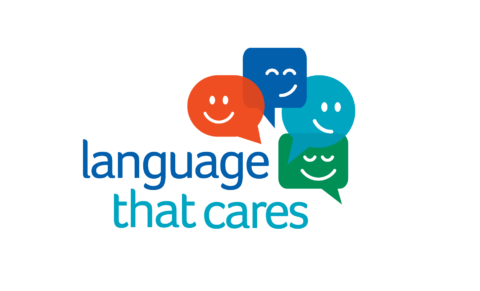
As foster parents and professionals, we know just how incredible the children and young people who we care for are. We strive daily to uplift them and celebrate each and every one of their achievements and make sure their voices are heard.
Unfortunately, there is still societal stigma attached to children and adults who have lived experience of the care system, which is why many care experienced people and those who hold fostering close to their heart have recently begun to advocate for experience of living in care to become one of the characteristics protected under UK law by the Equality Act.
The power of language
As care practitioners we’re committed to breaking down the stigma around care-experienced young people, and one of the ways in which we can do that is in the language we choose. It’s important that we’re mindful about the language we use about and around the children who we care for.
A national survey conducted by our partner Polaris, which includes feedback from children living with Clifford House foster parents, found that many children find some of the terms associated with their care upsetting.
Words have a powerful influence over us and can have a long-lasting impact. The language we choose can change the way a child sees themselves; negative or dehumanising terms can erode their self-confidence, whereas positive and affirming terms can help build them up.
Using sensitive language around care
When talking about a child’s experiences, it’s important to put yourself in the young person’s shoes. Some of the professional terms used to talk about aspects of a child’s care can come across as cold or unfeeling. For example, we may talk about ‘challenging behaviours,’ or say that a child is going on a ‘contact visit’ to see their family. Before using a term, ask yourself:
‘How would I feel if someone spoke about me or my family this way?’
Below are some examples of words which might be considered insensitive, alongside more considerate and inclusive alternatives which we can use when talking about the lived experiences of the young people we care for. All of the suggestions below have come directly from children and young people who took part in the Polaris study.
| Instead of… | We might say… |
| ‘Contact with birth family’ | ‘family time,’ ‘visiting family’ |
| ‘Placement’ | ‘moving to a new home’ |
| ‘Reunification’ | ‘going home’ |
| ‘Respite’ | ‘sleepover’ |
| ‘Birth parent/s’ | ‘parents’, ‘mum’ or ‘dad’ |
| ‘Contact centre’ | ‘family hub’, ‘family centre’ |
| ‘Siblings’ | ‘brother/sister’, or use their name |
| ‘In care’ | ‘living with a foster family’ |

Understanding the impact of trauma on behaviour
Many children living with foster families have experienced lots of challenges in their young lives, ranging from abuse or neglect to the loss of a parent. As such, many children live with trauma, and they need tailored support, patience and compassion to help them heal from their adverse childhood experiences.
We need to reframe the way we look at certain behaviours to ensure we’re giving our best to children. Rather than dismissing something as ‘bad behaviour,’ we need to look below the surface and recognise a child’s behaviours for what they really are: survival strategies which they may have developed in order to help them feel safe in an uncertain or frightening environment. We teach our foster parents all about reframing the way we look at behaviour during our therapeutically informed training sessions.
Talking about behaviour in a trauma-informed way
As a foster parent, you will likely encounter some challenging survival strategies while fostering, and it can be difficult to navigate these moments. It can be easy to use careless language in the heat of the moment, but we should always consider our words carefully. Words like ‘naughty,’ ‘difficult’ or ‘bad’ can be very hurtful and can lead to a child internalising negative beliefs about themselves.
Instead of using negative language, we should use neutral or positive language and address concerns around behaviour with empathy, encouraging positive behaviour in children using praise, encouragement, and positive behaviour strategies. By emphasising a child’s strengths, we help make our home a safe and trusting place for children.
Records of achievement
Foster parents should also think carefully about the language they choose when filling out records and reports. Remember that the young person in your care will have access to these records once they reach young adulthood, and it could be hurtful to see themselves talked about in a negative light. Instead, focus on their strengths and be sure to use sensitive and inclusive language when talking about any challenges they may have faced.
By being mindful of the language we choose, we can help to ensure that the children we care for can thrive under the guidance of carers who understand their lived experiences and celebrate their individuality.
Could you foster?
If you’re ready to make a change to the lives of children in the Midlands and the surrounding area, we’d love to hear you. To get started on your fostering journey today, give us a call on 0800 369 8515 or fill in our enquiry form.
